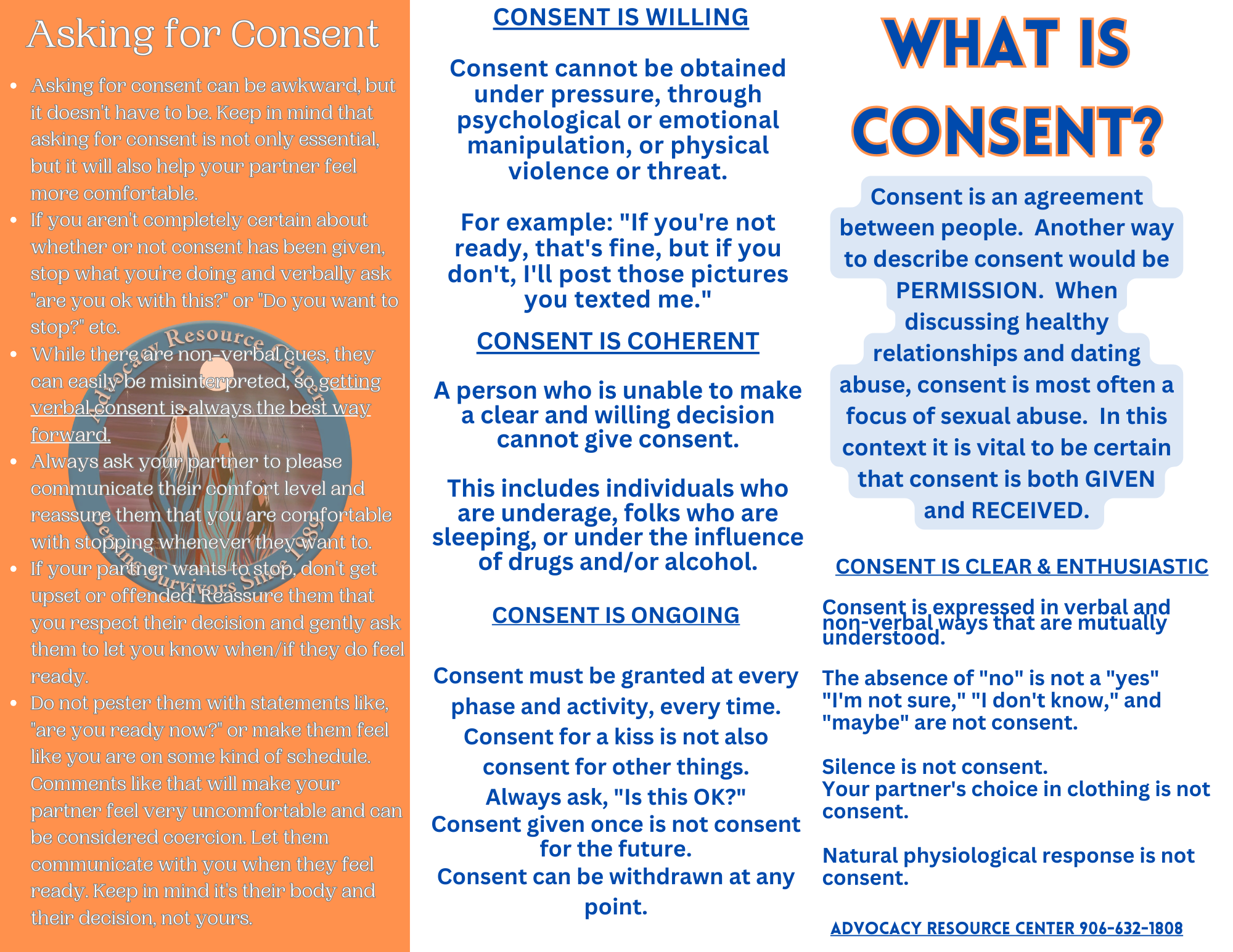April is Sexual Assault Awareness Month
Sexual Assault Awareness Month is an annual campaign to empower survivors by providing resources and support networks. It encourages open dialogue about consent, boundaries, and healthy relationships. It is for having crucial discussions that can help prevent sexual violence. It is essential to know that sexual assault affects people of all ages, genders, ethnic backgrounds, religions, and social statuses.
Survivors of sexual violence have diverse experiences, and by understanding and acknowledging those experiences, we can work as a community to create inclusive and supportive environments for healing and justice. According to the National Sexual Violence Resource Center (NSVRC), “Sexual violence is any unwanted sexual contact. This includes words and actions of a sexual nature against a person’s will and without their consent. A person may use force, threats, manipulation, or coercion to commit sexual violence”. The NSVRC identifies the most common forms of sexual violence as:
- Rape or sexual assault
- Child sexual assault and incest
- Sexual assault by a person’s spouse or partner
- Unwanted sexual contact/touching
- Sexual harassment
- Sexual exploitation and trafficking
- Exposing one’s genitals or naked body to other(s) without consent
- Masturbating in public
- Watching someone engage in private acts without their knowledge or permission
- Nonconsensual image sharing
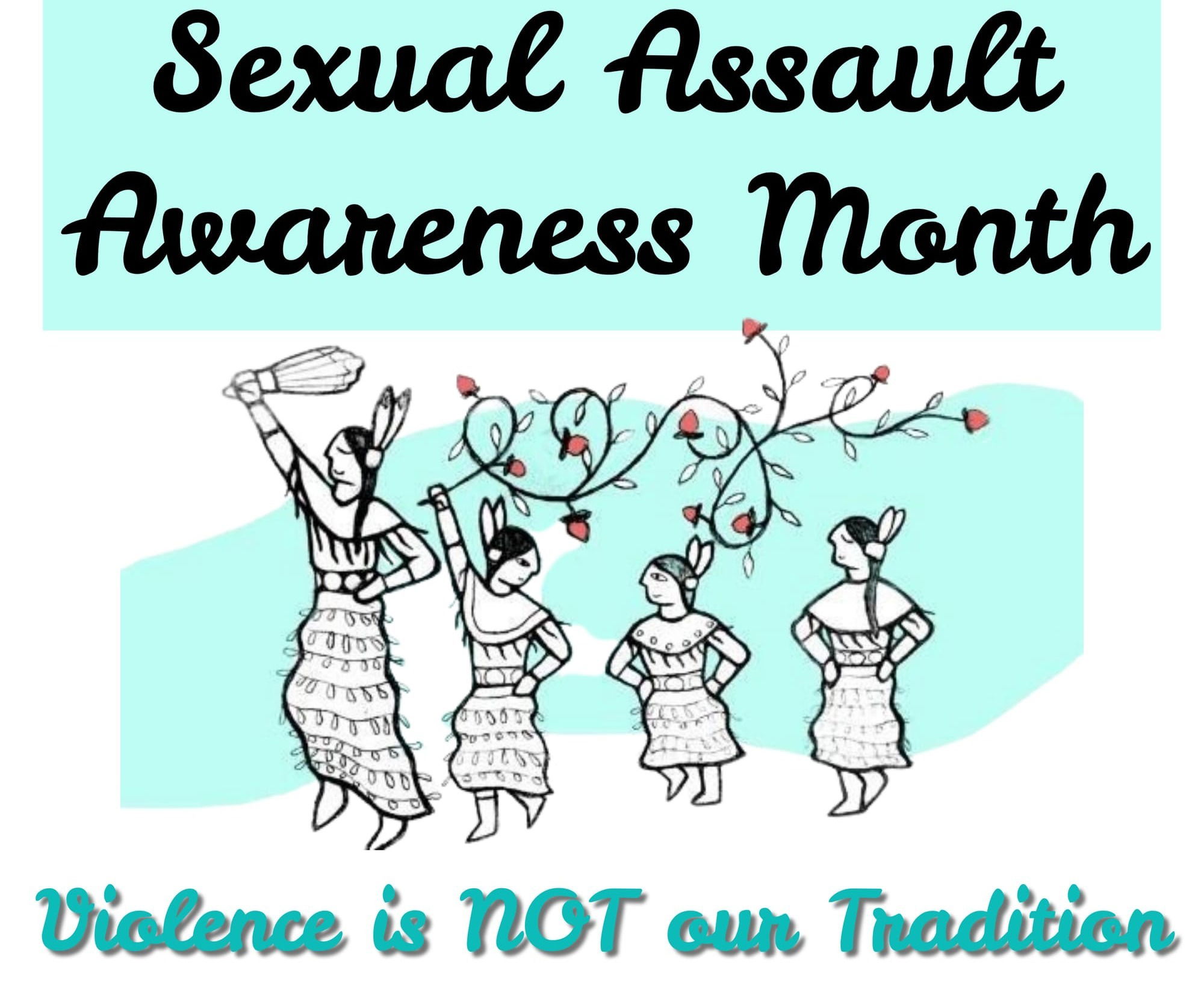
One of the goals of community education is to make CONSENT a household word. Consent is an agreement between two people. Consent is essentially “getting permission” to touch someone and should always be obtained and never assumed.
Teaching children and young adults about consent from a young age can create healthier dating behaviors and relationships. Explaining to our children that NO means NO regarding touching someone else or entering the personal space can better prepare them and help them understand consent and why it is necessary. Another vital aspect of preventing sexual assault/sexual violence is to emphasize the importance of bystander intervention.
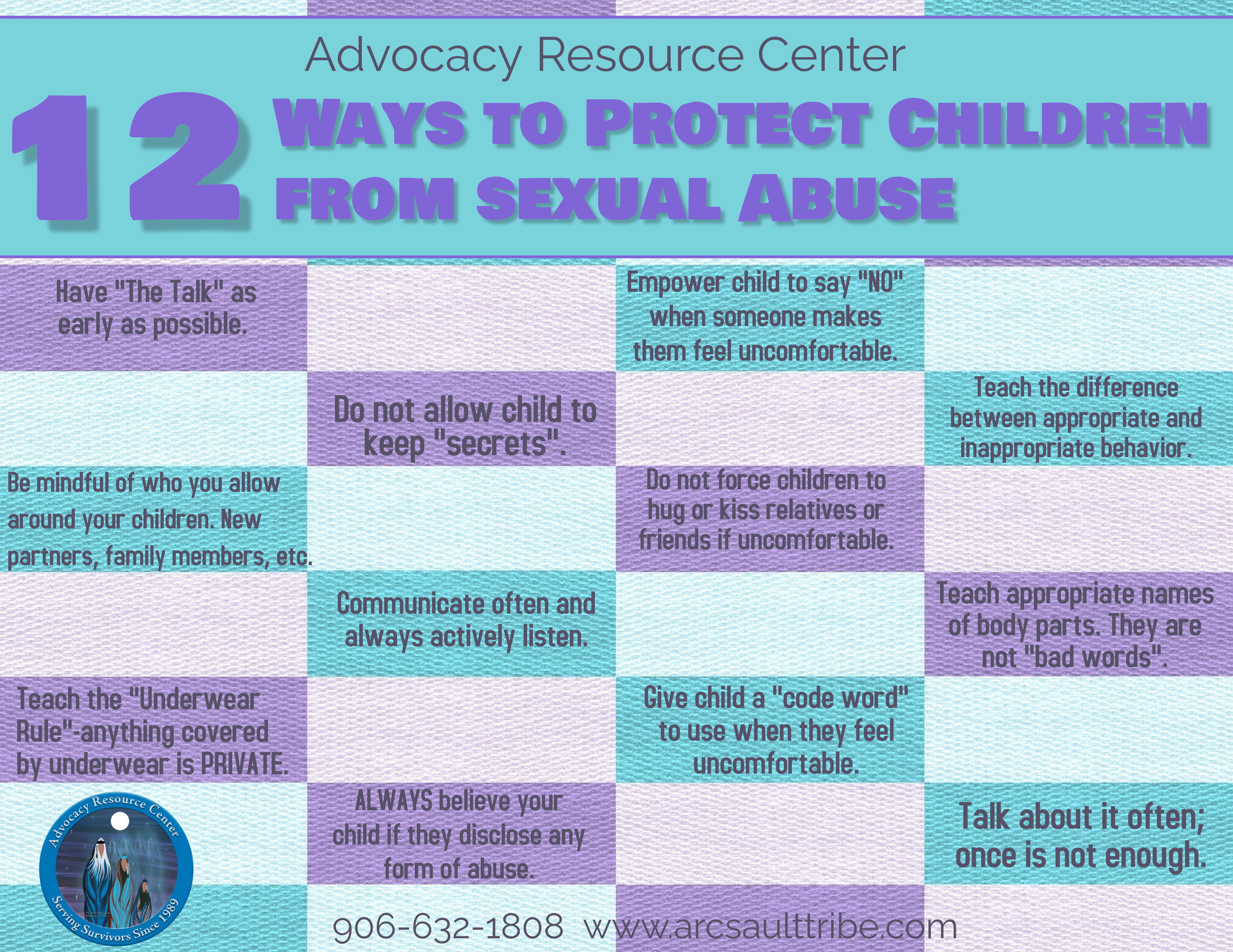
We must encourage bystanders to speak up and intervene when they witness potentially harmful situations. Most people choose not to get involved and feel it is not their business or assume someone else will say something. However, bystanders can prevent sexual assault from happening, whether it’s the first incident or ongoing abuse.
If a child is being abused and a bystander overhears something or suspects abuse may be happening, reporting it anonymously may prevent that child from a lifetime of repeated abuse. As always, if you see something, say something.
Victim blaming is a prejudice against the victim of the crime rather than the perpetrator. Victim blaming is used most often against domestic and sexual violence survivors. It is crucial to believe survivors of sexual abuse. It is not up to you to decide if someone is a victim of sexual abuse. Do not blame the victim. It is NOT the victim’s fault they experienced sexual abuse. Often, people judge the victim and place blame on their actions before choosing to believe the person was abused “for no reason.”
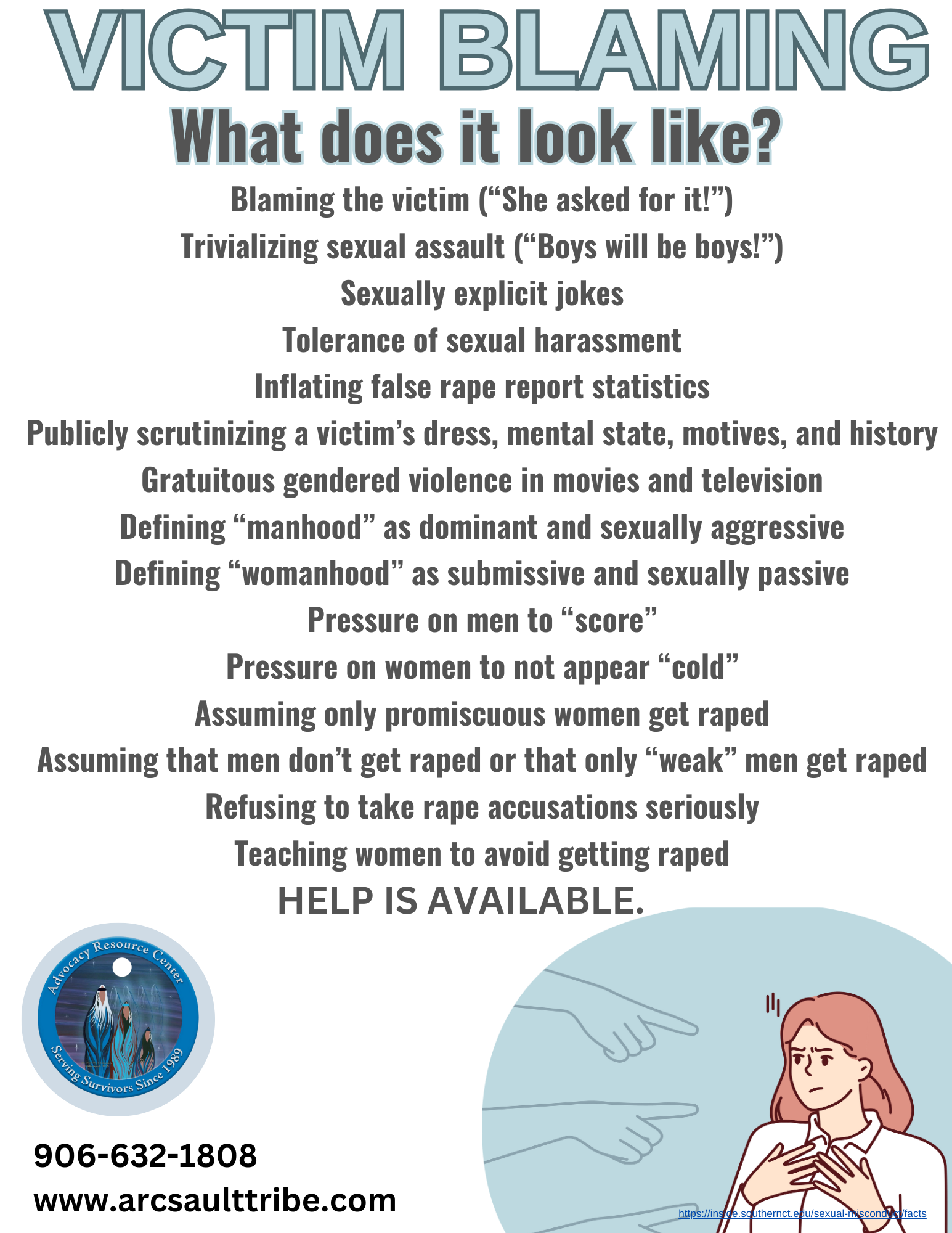
People are quick to point out that the victim may have been drinking, the way the survivor was dressed, or claimed the victim was “asking for it.” Victim blaming is a large part of “rape culture,” which is society’s stereotypes and views on sexual abuse. Media often makes light of rape culture by normalizing rape and excusing the objectification of women. It is essential to place the blame where it lies, in the hands of the perpetrator. We must believe all survivors and help them receive the help and support they need to begin the healing process. If you are a survivor of sexual assault, help is available.
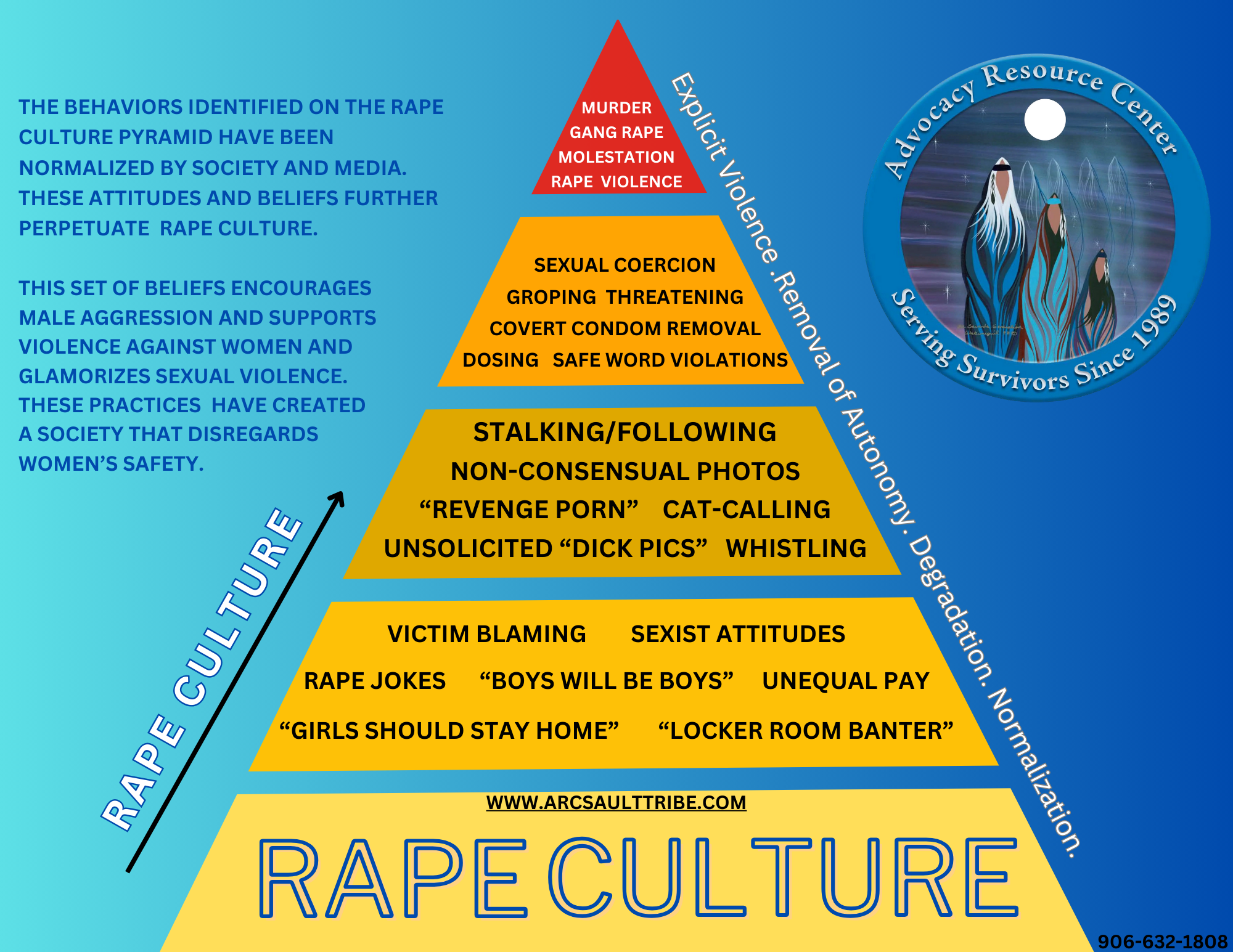
The Advocacy Resource Center (ARC) has advocates on hand to offer support and guidance. Anyone can use ARC services. Contact an advocate at 906-632-1808. If you suspect child sexual abuse, report it to the Michigan Department of Health and Human Services at 1-855-444-3911 (or your local DHHS if not in Michigan) and your local police department.
Please remember, if you see something, say something.
You can remain anonymous.
Find more information about sexual violence at https://www.rainn.org/ RAINN is the Rape, Abuse, & Incest National Network and has hotlines available 24/7 or a live chat option on the website. Advocacy Resource Center advocates can be reached at 906-632-1808.
